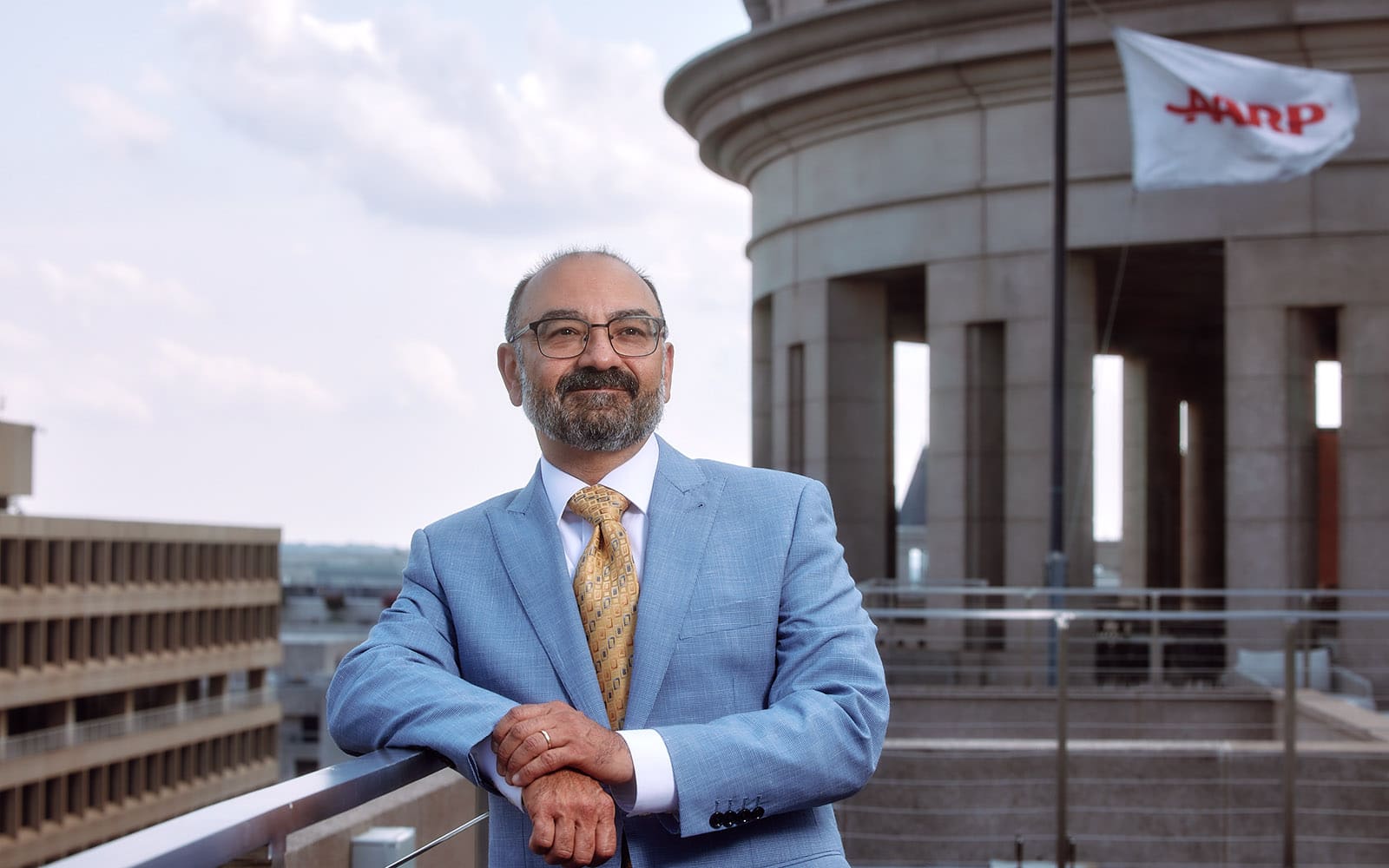|
Getting your Trinity Audio player ready...
|
One of William Alvarado Rivera’s favorite pictures was taken during a summer in Puerto Rico. Rivera’s mother, her father, and her father’s father are pictured finishing up a game of dominos. Rivera grew up in a multigenerational household, raised by his single mother and abuelita in the Bronx and Brooklyn. From a young age, the current SVP for litigation at AARP Foundation thought differently about aging than many people in the US.
“I grew up very close with my grandparents and great-grandparents,” Rivera explains. “Every day I saw the value of people at different points of their lives.”
Rivera joined AARP Foundation—AARP’s charitable affiliate that works to end senior poverty and reduce financial hardship for people over the age of fifty—in 2015. But he’s spent decades working on behalf of communities that need outspoken advocacy. The attorney spent over thirteen years at the US Department of Health and Human Services, tackling areas such as improving the safety and well-being of children and families with low incomes, disabled persons, and senior citizens. In short, Rivera has made a career out of fighting for the underdogs.
“I grew up very close with my grandparents and great-grandparents. Every day I saw the value of people at different points of their lives.”
William Alvarado Rivera
At AARP Foundation, Rivera confronts a culture that overlooks aging people when it comes to issues of discrimination, exploitation, and financial dignity. Recently, Rivera advocated on behalf of victims of faith-based pension plans, or “church plans.” AARP estimates that approximately one million Americans are at risk of losing access to pensions they expected.
Church plans are exempt from the Employee Retirement Income Security Act of 1974, which requires employers to contribute a minimum amount to pension plans. Thus, they do not protect people enrolled in their plans. The consequences can be grim. Rivera points to cases involving the African Methodist Episcopal Church or the Catholic Diocese of Albany. Those churches took advantage of people who dedicated their lives to their faith, leaving parishioners without the pensions promised to them.
“These are people who are relying on their faith and religious institutions to take care of them after they’ve spent decades of service,” Rivera explains. “People often take jobs that pay explicitly less money with the understanding that they will be taken care of later. To have those promises broken is devastating, personally and financially.”

Rivera and AARP Foundation are also working to change broader attitudes about aging. Rivera wishes more people would see the benefits of having five generations of Americans in the current workforce.
“A multigenerational workforce means mentoring up and down and opportunities for learning and growth,” the SVP says. “If we are all fortunate to be living longer and healthier lives, those who want or need to continue working should be able to do it. But we know there are so many negative stereotypes about older people.”
“We still have a long way to go to challenge stereotypes about what it means to be older.”
William Alvarado Rivera
Rivera says age discrimination is often overlooked, even though everyone, ideally, will reach that same age. Older people often face uphill battles when it comes to receiving healthcare and housing. For example, employers may assume that they will struggle in fast-paced environments, where people fail to appreciate the value an older population brings to a community.
“We still have a long way to go to challenge stereotypes about what it means to be older,” Rivera says.
For older Hispanics, Rivera says the conversation often centers on “salud, dinero, y amor.” With all three, life can be rewarding. But when one element is missing, who will protect and advocate for a community that is often forgotten in American culture?
Rivera is proud to work at AARP Foundation, where the organization examines policy, legislation, and culture with the needs of older people in mind every single day. And in Rivera’s case, he puts the law to work for the people who need it most. Change will come, the attorney says, when we start thinking about aging more holistically—and, ironically, more selfishly.
“Historically, aging hasn’t been included in diversity and inclusion discussions,” Rivera says. “But aging cuts across every category. Race, ethnicity, gender, sexual orientation, gender identity, disability, veteran status: all these issues have crucial aging components that don’t get discussed enough. But more broadly, we’re all aging. Why don’t we think about an issue that will literally affect us all, Lord willing?”
AARP is also focused on the future of caregiving, especially as massive numbers of Baby Boomers wind down their careers. Rivera says that supporting family caregivers is more important than ever.
“We need to support structures that allow people to act as caregivers for their families,” Rivera says. “How can we compensate loved ones? Family care is cheaper than long-term care facilities, and it’s almost always where the person would rather be—at home with people they know and care about.”
It’s not an easy fight, but it’s truly a fight for all of us, whether we want to think about it or not. William Rivera is fighting to help us maintain our dignity and health as we age. What’s your plan?

